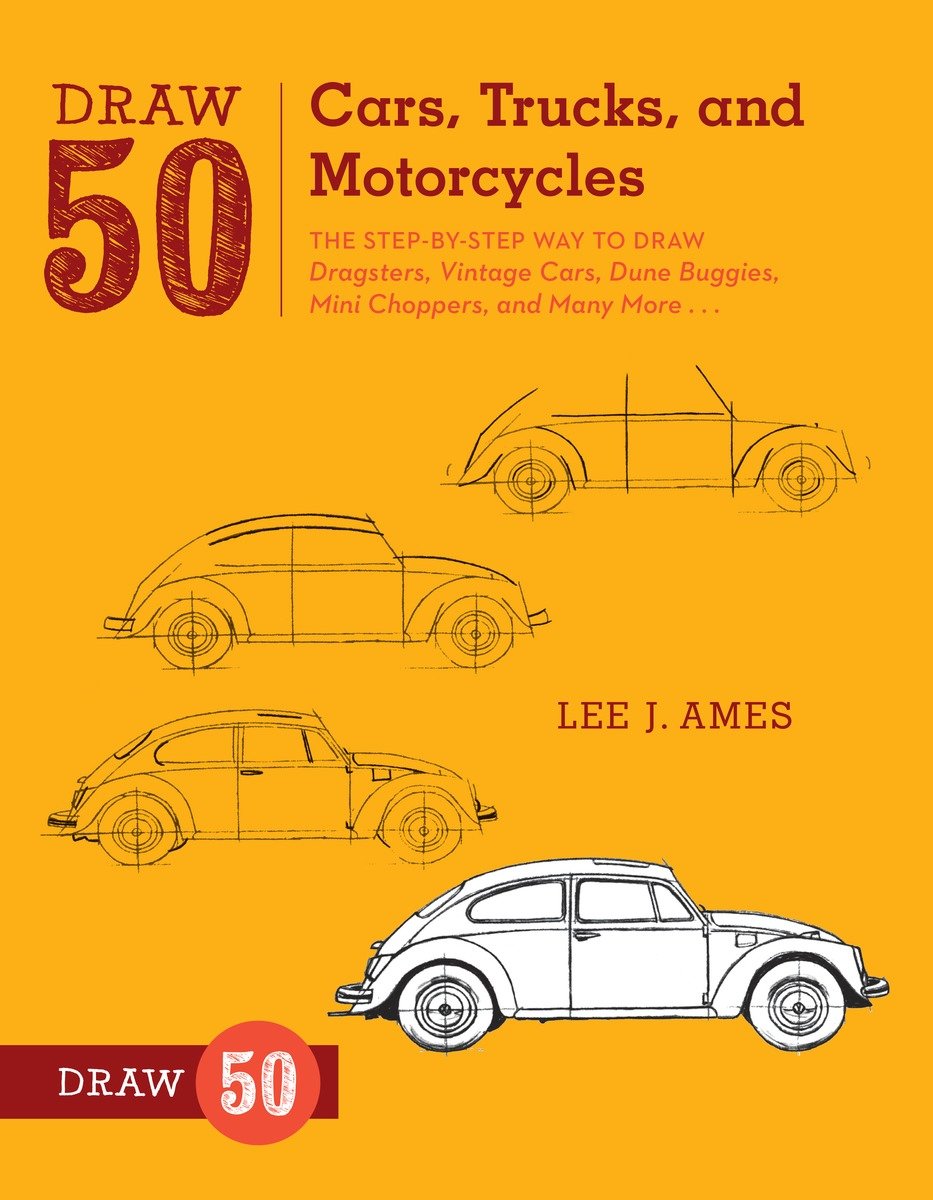The Step-by-Step Way to Draw Dragsters, Vintage Cars, Dune Buggies, Mini Choppers, and Many More…: Draw 50 Cars, Trucks, and Motorcycles
9.00 JOD
Please allow 2 – 5 weeks for delivery of this item
Add to Gift RegistryDescription
Draw 50 Cars, Trucks, and Motorcycles shows artists of all levels how to draw with ease by following simple step-by-step examples. Celebrated author Lee J. Ames shows you how to draw your favorite hot rods, sports cars, and clunkers, including Rolls-Royces, Bentleys, dump trucks, tandem bikes, and Harley-Davidsons, with drawings of classic models from 1870 to 1984. Ames’s drawing method has proven successful for children and adults of all ages over the past forty years. The twenty-nine books in the Draw 50 series have sold more than 5 million copies and have shown artists from beginning to advanced levels how to draw everything from animals to airplanes. It’s easy to have your dream car at your fingertips when it’s done the Draw 50 way.
Additional information
| Weight | 0.2 kg |
|---|---|
| Dimensions | 0.49 × 21.59 × 27.54 cm |
| PubliCanadation City/Country | USA |
| Author(s) | |
| Format | |
| Language | |
| Pages | 64 |
| Publisher | |
| Year Published | 2012-5-8 |
| Imprint | |
| ISBN 10 | 0823085767 |
| About The Author | Lee J. Ames began his career at the Walt Disney Studios, working on films that included Fantasia and Pinocchio. He taught at the School of Visual Arts in Manhattan, and at Dowling College on Long Island, New York. An avid worker, Ames directed his own advertising agency, illustrated for several magazines, and illustrated approximately 150 books that range from picture books to postgraduate texts. He resided in Dix Hills, Long Island, with his wife, Jocelyn, until his death in June 2011. |
| Excerpt From Book | "Leslie can draw a Rolls-Royce better than anybody else!" Such peer acclaim and encouragement generate incentive. Contemporary methods of art instruction (freedom of expression, experimentation, self-evaluation of competence and growth) provide a vigorous, fresh-air approach for which we must all be grateful. New ideas need not, however, totally exclude the old. One such is the "follow me, step-by-step" approach. In my young learning days this method was so common, and frequently so exclusive, that the student became nothing more than a pantographic extension of the teacher. In those days it was excessively overworked. This does not mean that the young hand is never to be guided. Rather, specific guiding is fundamental. Step-by-step guiding that produces satisfactory results is valuable even when the means of accomplishment are not fully understood by the student. |
| series |
Only logged in customers who have purchased this product may leave a review.






Reviews
There are no reviews yet.